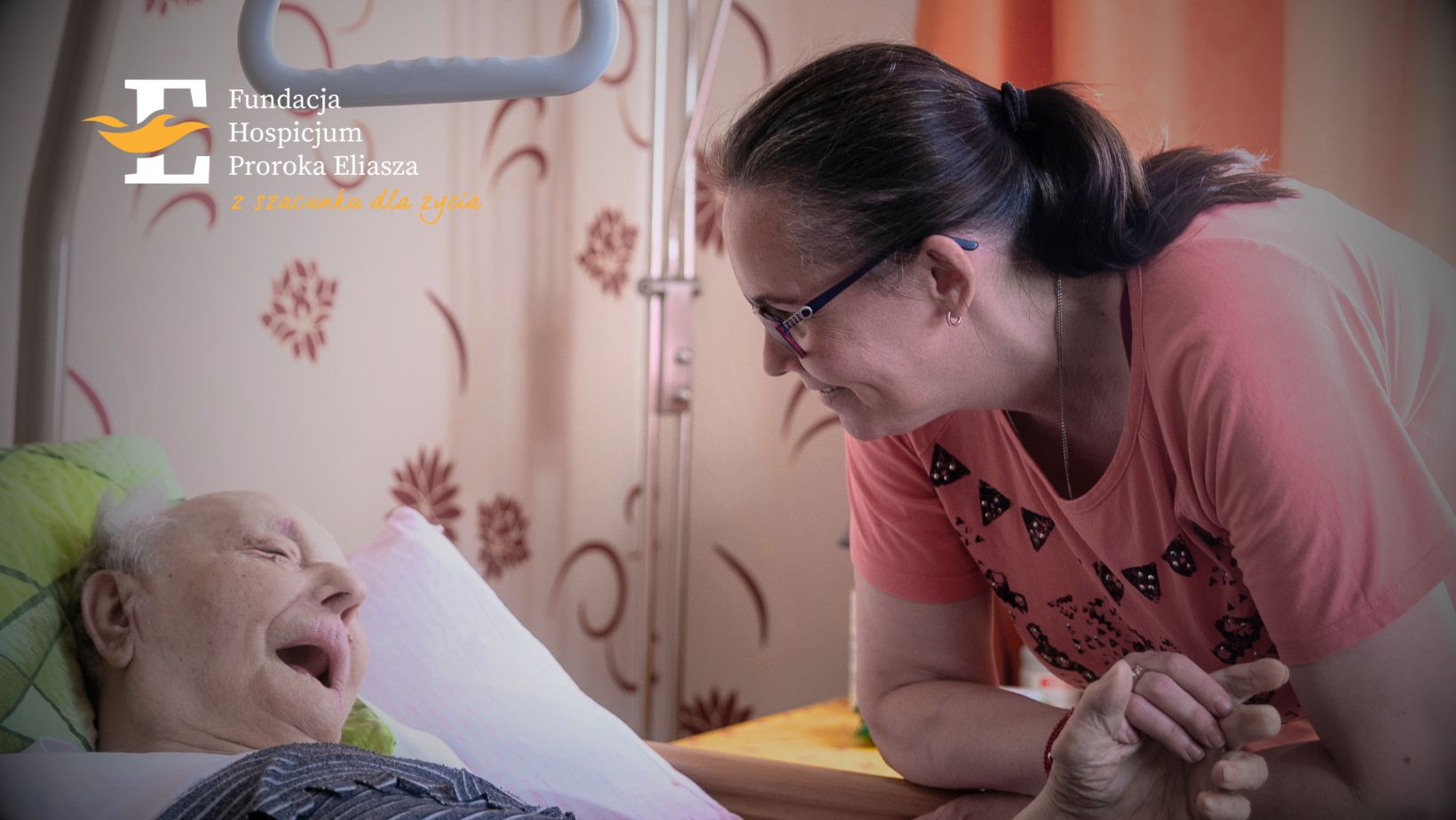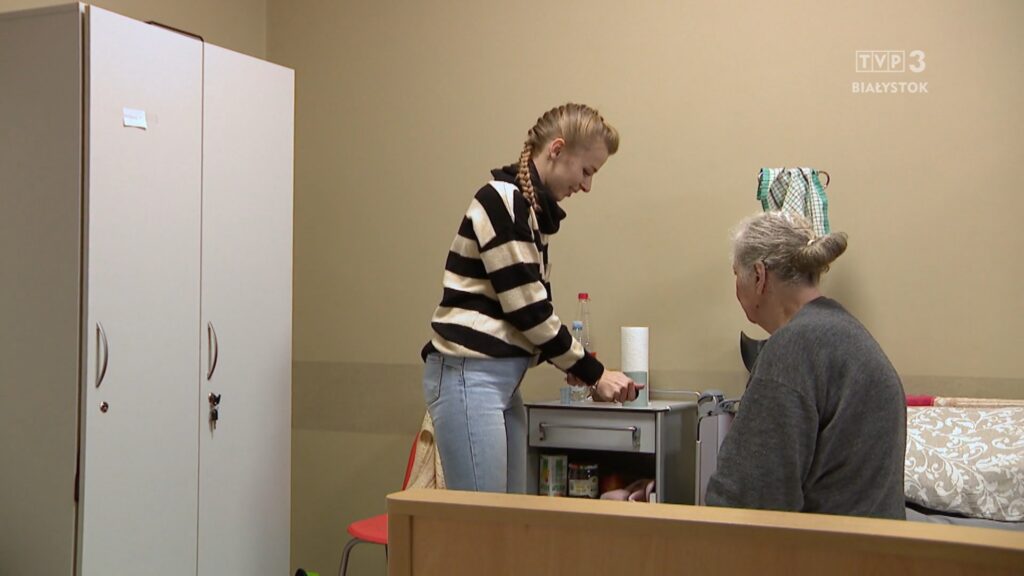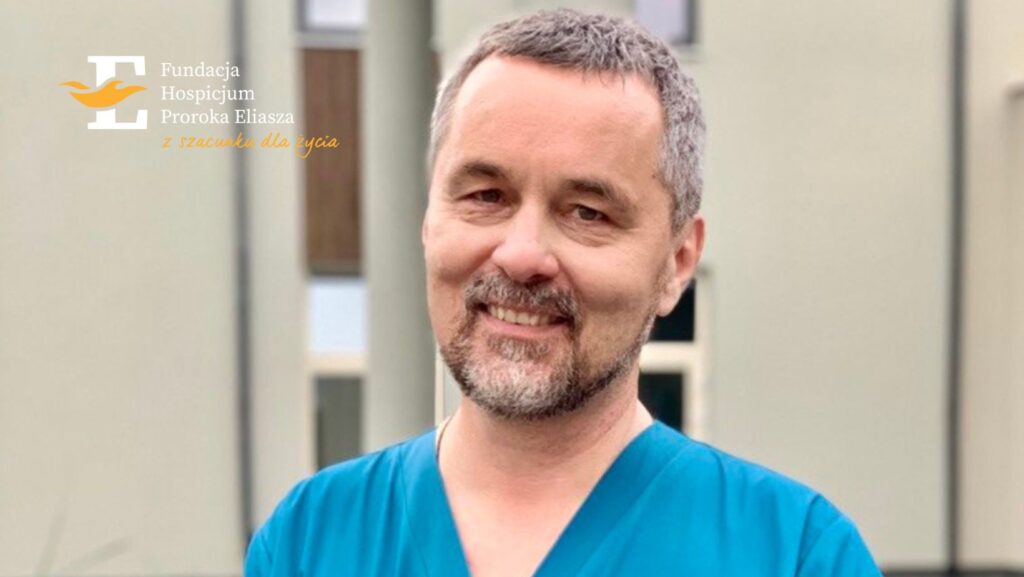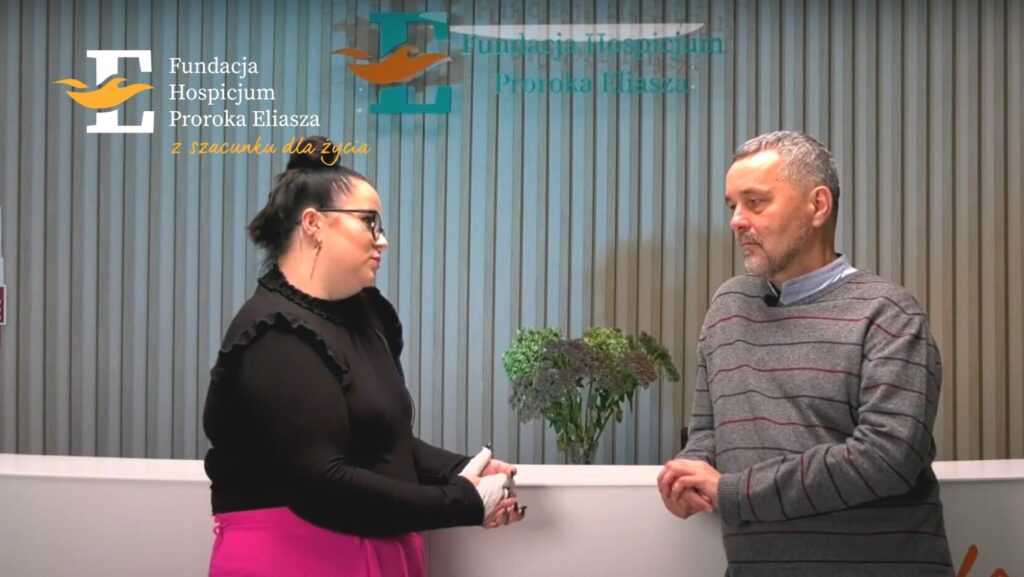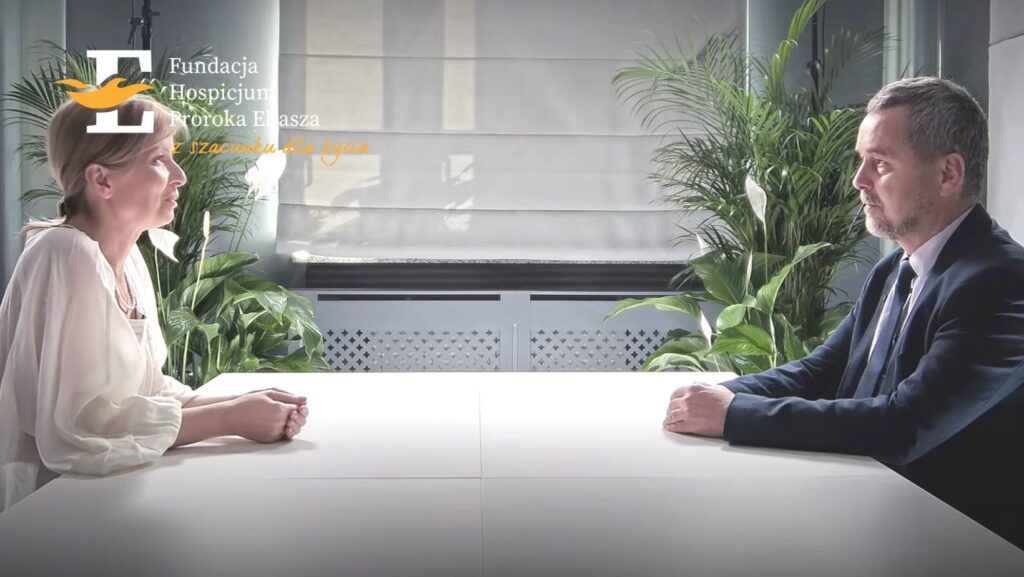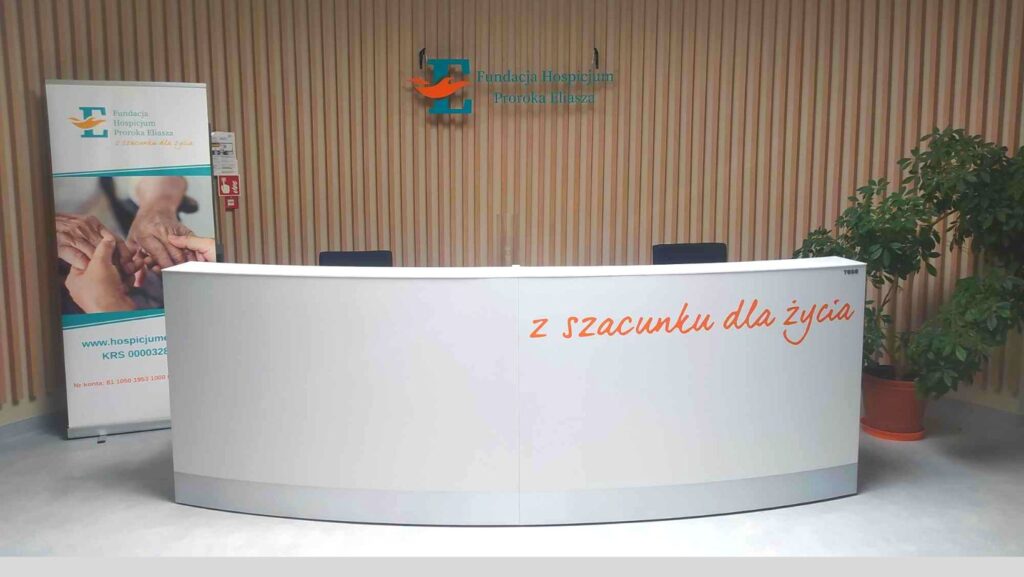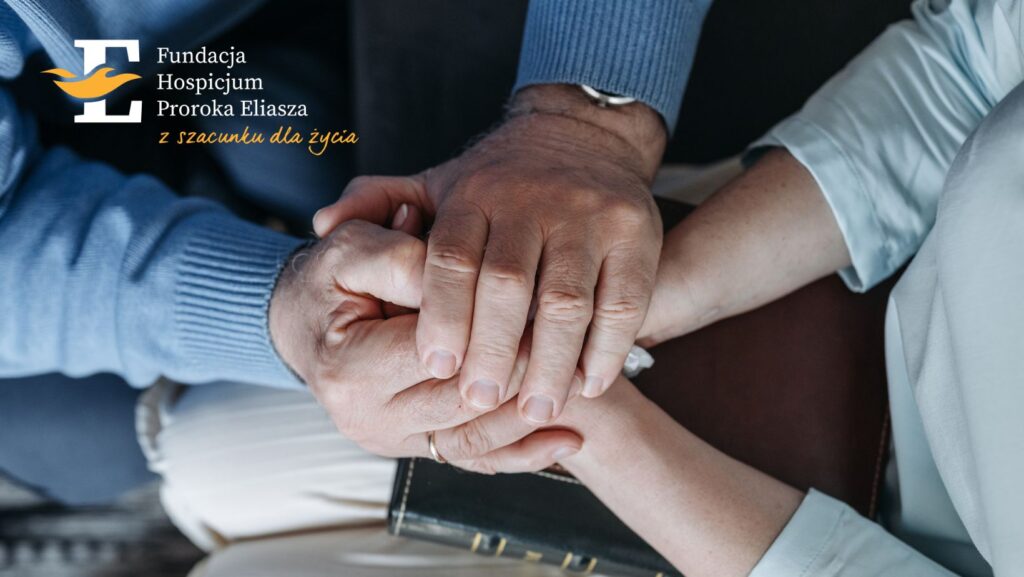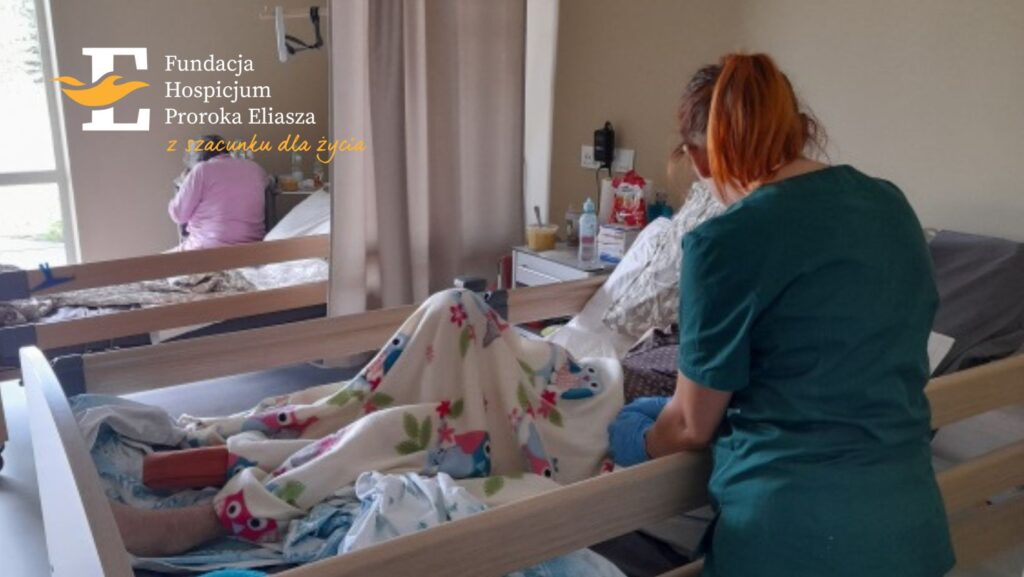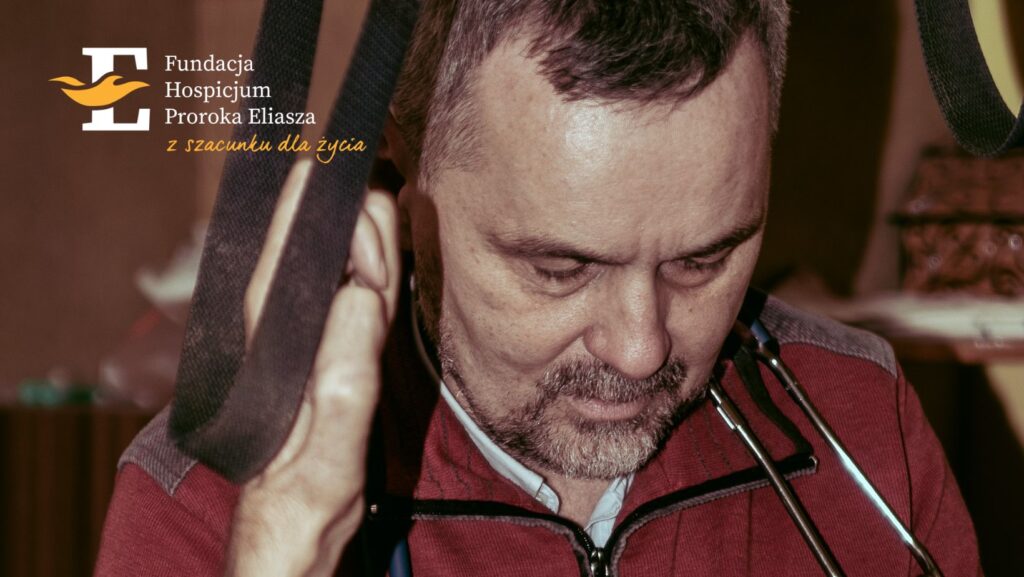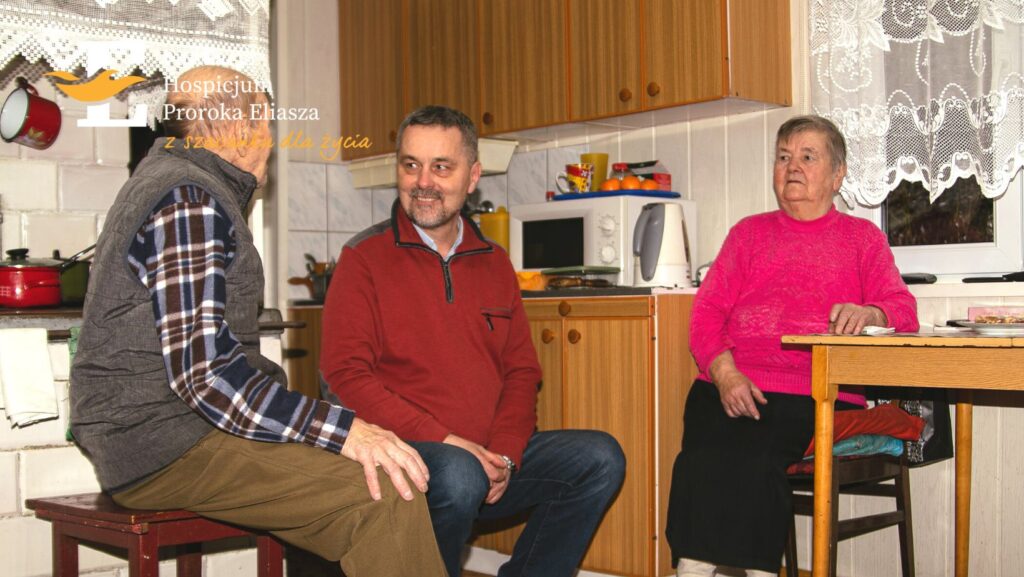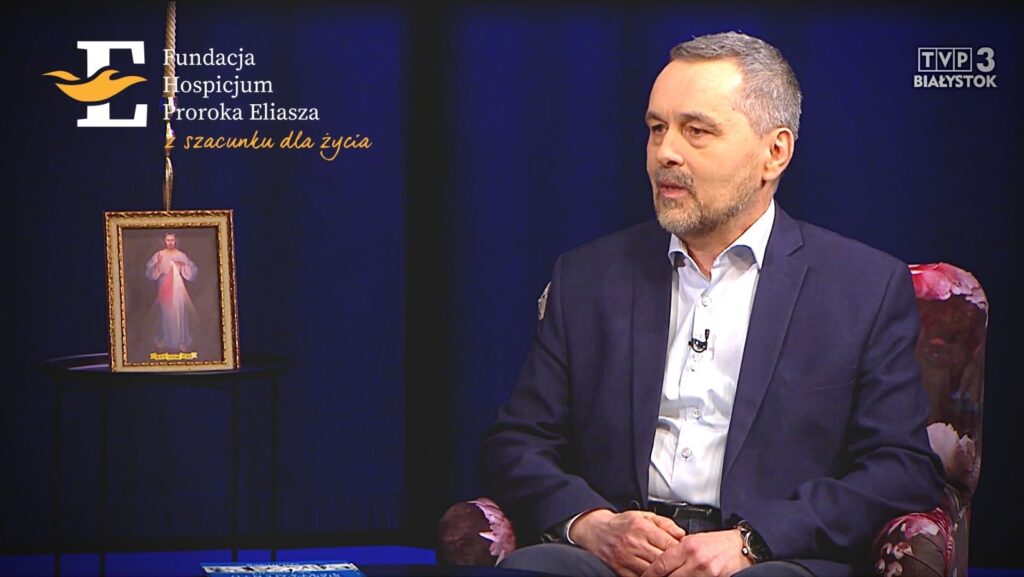Why is respite care for the hospice medical team so necessary?
Psychologist Ms. Grazyna Niewiadomska tells the story
According to A. Maslow’s classification, we have five categories of needs: physiological, safety, belonging, esteem, self-actualization. These are universal needs, which include such needs as the need for meaning and purposefulness in work, but also the need to be needed and appreciated, the need to experience gratitude, the need for supportive relationships, autonomy, competence. I see all these needs clearly among hospice employees.
Meetings with a psychologist are held because of an awareness of the emotional demands of working among the dying. A person, doing work that involves him emotionally, is very much at risk of professional burnout. Meetings with a psychologist play a protective role against burnout if only by increasing employees’ self-awareness, coping with emotions, expanding knowledge of the psychological aspects of dying and bereavement, for in this case knowledge is protective. A person who knows how the process of preparing for the death of both patients and their loved ones takes place, has a chance to correctly interpret the behavior of his charges, and thus support more effectively, while protecting himself from unnecessary frustration. Meetings with a psychologist are held because the burden of emotional challenges associated with hospice work has been recognized, and the employee is taken seriously and with care, his well-being matters.
For everyone, burnout can come at different times, as it depends on personality traits, such as, for example, assertiveness. A person who is unable to express his or her needs or defend his or her boundaries in a non-attacking manner is much more likely to suffer from occupational burnout than one who adopts an assertive attitude in difficult situations. Occupational burnout, according to Maslow, is also largely contributed to by the organization of work, and we are more likely to experience occupational burnout where good organization is lacking. Every person has a need for the kind of work for which he is predisposed, which, in simplest terms, works out for him. Ignorance of the employee, his strengths, but also his weaker ones, leads to putting the wrong people in the wrong places for them. Burnout is always more likely when there is a major mismatch between the nature of the job and the character of the person doing it. The social environment in which a person comes to work has a very strong influence on the development of burnout.
The structure and functioning of the workplace shape how people interact with each other and how they do their jobs. When people go unnoticed in the workplace, the risk of burnout increases rapidly. According to newer theories backed by research, individual employee burnout indicates more about the state of their workplace than about themselves.
Key symptoms of burnout include: cynicism and depersonalization (emotional distance from patients or colleagues, a cold attitude resulting from the belief that it is better to be indifferent, a person minimizes his commitment to work and even abandons his ideals); emotional and physical exhaustion; and lack of satisfaction with personal achievements; People whose work is characterized by strong emotions and demands that they are unable to cope with, without being taken care of themselves (i.e. without receiving meaningful support), naturally begin to create mechanisms to protect themselves from strong discomfort. This is common and normal. Figuratively, it can be compared to the formation of a glass bubble, with which a staff person slowly seals himself off from those he is caring for professionally. This bubble wall is there to protect the person. Since I am unable to meet the needs of those who are ill, either because I don’t have the space to do so, or because I don’t know how, or because I can’t maintain a healthy distance and become overly involved, I begin to feel more and more uncomfortable. The bubble begins to protect me from hearing requests that I have no idea what I could do about, because whatever I did, I incurred an emotional cost, i.e. I suffered. In a situation where I have no tools to deal with this kind of work, it can look like this: When the patient was in pain, I didn’t help because I was swamped with other work, when he was grieving, I felt helpless, when he was searching for the meaning of life and suffering, I couldn’t point it out, when he was dying I couldn’t even hold his hand because I had just been called to another task and felt terrible, and then I was in mourning for him for a while.
I didn’t have time to recover, and there were more sick people waiting. It’s not possible to do this for a long time. That’s why I created a shield against suffering: in this bubble I can see the sick person, but I can’t hear his moans, substantively I can perform my duties well – put on a bandage, apply medicines, but on an emotional level there is no contact between me and the person I care for. This is how depersonalization can be born. It poses a danger not only to me, who is slowly ceasing to be an empathetic and sensitive person, which is the way I was when the idea of this type of work was born, but it poses a huge risk to the helpless, dependent charges under my care. People who take care of the sick can start to strip care of humanism, their work can become more like a factory, where at nine o’clock it’s a change of pampers, right after that it’s airing the rooms, at eleven o’clock it’s injections, and at thirteen o’clock it’s lunch, and then again it’s a change of dressings. All on time, according to procedures. And not much else. Hospice is a place that was created to help a dying person, holistic, compassionate and warm help, so you really have to do a lot to make sure that not only the patient, but also the staff are taken care of, so that the situations described above do not happen.
We deal with the death of our charges in different ways. In my experience, usually through cognitive processing of the subject. A reevaluation, a change of beliefs – from the belief that people suffer to die soon afterwards, and there is little I can do about it, to the belief – I can do a lot, I have a significant impact on the last stage of a person’s life, it largely depends on me what this climactic, important chapter of his life on earth will be.
Recommendations for medical personnel? A proactive attitude, assuming the continuous acquisition of knowledge about the risks, related to the work and how to deal with them, in this case, knowledge has a protective factor for the employee; demanding that the team be taken care of, not only through supervision, but also by building a supportive team, with an efficient style of cooperation; expanding self-awareness, observing myself, do I leave my work with satisfaction and a sense of duty well done, or with frustration, crushed by emotions and quietly breeding my own burnout? Unfortunately, quietly, because as for their own burnout, employees are often skeptical, not always aware of the danger. Instead, the signals of staff burnout are noticed very clearly and quite quickly by outsiders, and most clearly and painfully by patients themselves.

